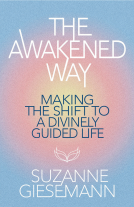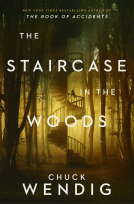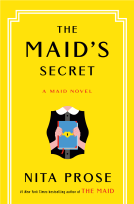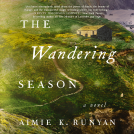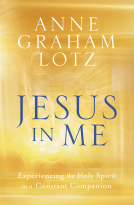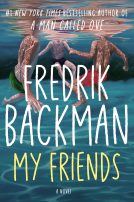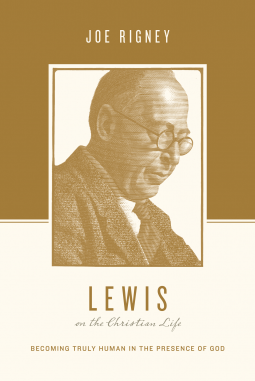
Lewis on the Christian Life
Becoming Truly Human in the Presence of God
by
This title was previously available on NetGalley and is now archived.
Send NetGalley books directly to your Kindle or Kindle app
1
To read on a Kindle or Kindle app, please add kindle@netgalley.com as an approved email address to receive files in your Amazon account. Click here for step-by-step instructions.
2
Also find your Kindle email address within your Amazon account, and enter it here.
Pub Date Apr 30 2018 | Archive Date Apr 05 2018
Talking about this book? Use #LewisOnTheChristianLife #NetGalley. More hashtag tips!
Description
Joe Rigney explores particular themes that run throughout C. S. Lewis's popular and lesser-known writings, illuminating how they help readers develop a deeper awareness of God's presence and work in their lives.
A Note From the Publisher
PDF may not be compatible with all reading devices
Advance Praise
“Joe Rigney has written an engaging book that artfully pulls together much of what C. S. Lewis had to say about living for the glory of Jesus Christ. Drawing upon Lewis’s books, essays, and letters, Rigney offers an insightful overview of the author’s teaching on Christian discipleship.”
—Lyle W. Dorsett, Billy Graham Professor of Evangelism, Beeson Divinity School, Samford University
“There may be no more important cultural question today than what it means to be human, and as Joe Rigney says early in this book, C. S. Lewis continues to be refreshing and unique on this question and so many others. Rigney’s ability to reintroduce Lewis to readers is refreshing, unique, and on full display in this book.”
—John Stonestreet, President, The Colson Center; coauthor, A Practical Guide to Culture
“C. S. Lewis gets to the heart of the human condition, and Joe Rigney gets to the heart of C. S. Lewis. Here is a much-needed book that offers a clear and concise overview of Lewis’s vision for the Christian life. Rigney’s take on Lewis is appreciative where deserved, critical where necessary, and always insightful in its application.”
—Trevin Wax, Bible and Reference Publisher, LifeWay Christian Resources; author, This Is Our Time: Everyday Myths in Light of the Gospel
“A thoughtful, lucid, and beautiful exposition of a magnificent writer. Whether you are relatively new to C. S. Lewis or have read all his books, Joe Rigney will show you ideas and connections that are easily missed, and increase your appreciation for Lewis’s insights on the Christian life.”
—Andrew Wilson, Pastor, Kings Church London; author, The Life We Never Expected and Unbreakable
“C. S. Lewis’s theology is a mix of faithfulness to the creeds, brilliant analogies, rare good sense, and, unfortunately, a few areas of doctrinal weakness. Joe Rigney’s book Lewis on the Christian Life accurately reports Lewis’s theology as it relates to practical Christian living. He does an excellent job of bringing out the good sense and carrying on a respectful but critical conversation with Lewis about those shortcomings. The end result is a book that will help you understand Lewis and practice the Christian life. This is a book I’m glad I read and one that you will want to read. I recommend it with enthusiasm.”
—Donald T. Williams, R. A. Forrest Scholar, Toccoa Falls College; author, Deeper Magic: The Theology Behind the Writings of C. S. Lewis
Available Editions
| EDITION | Other Format |
| ISBN | 9781433550553 |
| PRICE | $21.99 (USD) |
Featured Reviews
 Eva L, Educator
Eva L, Educator
This book is an absolute delight and captured me utterly right from the introduction. As a fan of some of CS Lewis' works, and someone who doesn't quite connect with others, I still have a deep respect and interest in him; indeed, his writing is one of the things that helped me move from atheism to faith. This book beautifully looks at his vision for the Christian life, and explores how he brings this vision to life in his books. I will need to buy hard copy of Lewis on the Christian Life, as I will need to read it several more times, and I'll need to write copious notes in the margins (because yes, Im that sort of reader). Rigney notes at the beginning tht he wishes that we were all together in a reading group, and after reading his work, I heartily wish that were the case too.
 JT T, Reviewer
JT T, Reviewer
My love for C.S. Lewis is growing big time. I have always enjoyed his writings, but never fully jumped into them because of his depth, but after reading Surprised by joy and understanding his childhood and his passions, I am opening up myself to his writings more each day. He is a very good writer and his imagination is priceless. I am very thankful for this book because it allowed me to understand Lewis even more so. It actually is a great compliment to reading Surprised by joy. I am very thankful because these series are deepening my roots in Christianity and I am so thankful to be able to hang out with people like this who are dead and gone, but are able to still speak into my life because of these resources. What a blessing.
First sentence from chapter one: “Begin where you are.” This little phrase, tucked away in one of the letters to Malcolm, is the right place to begin our exploration of Lewis on the Christian life. Lewis calls this a great principle, and it is implicit in almost everything he writes. Again and again, he wants to bring us back to brass tacks, to awaken us to the present reality, to help us feel the weight of glory that presses on us even now. This is the real labor of life: “to remember, to attend. In fact, to come awake. Still more, to remain awake.”
Crossway publishes a series titled Theologians on the Christian Life. Lewis on the Christian Life by Joe Rigney is one of the books in that series. It examines the life and works of C.S. Lewis. Rigney purposefully chooses not to focus on the main works of Lewis: Mere Christianity, the Chronicles of Narnia, and Screwtape Letters. He chooses instead to draw inspiration from his other books, the books that readers are less likely to have read and reread.
Rigney writes: In everything he writes, his aim is to remind us that we are here and now, that God is here and now, that this God makes total demands of us, and that therefore we must choose to bow the knee or to bow up, to surrender and join our wills to God’s or to resist his will and insist on our own way. In short, Lewis is ever and always attempting to clarify for us the nature of the Choice.
I have a love-hate relationship with C.S. Lewis. I love all but one of the Chronicles of Narnia. I DESPISE The Last Battle. I love the Screwtape Letters. Mostly. I like some chapters of Mere Christianity. Some of the ideas in Mere Christianity are true--biblical. Other ideas found within Mere Christianity are not biblical...at all. Lewis can quite honestly be quite mistaken and just plain WRONG on doctrines of the Christian faith. Every Lewis quote is--in my opinion--to be weighed carefully and thoughtfully in light of the Word of God. Anything that disagrees with the revealed word of God--no matter how lyrical, no matter how appealing--is to be rejected.
Lewis believed in purgatory. This book discusses Lewis' ideas on purgatory. It doesn't seek to correct Lewis' flawed theology. It just presents it as Lewis' own idea not drawn from scripture. Lewis' views on hell also appear to be STRANGE.
Did I like the book? No. Yes. No. Maybe. I enjoyed some chapters more than others. Some chapters were more accessible and straightforward than others. All the chapters were packed full of quotes by C.S. Lewis. But not all Lewis quotes are supported or drawn from Scripture. The book seemed--in my opinion--to be more about Lewis' theories and imaginative ideas than biblical doctrines.
At times the book provided much food for thought.
"Our little decisions, when gathered together, turn out to be not so little after all. We are always sowing the seeds of our future selves. Every time you make a choice you are turning the central part of you, the part of you that chooses, into something a little different from what it was before."
"Real forgiveness means not only forgiving someone seventy times for seventy offenses but also forgiving someone seventy times for a single offense."
"“As long as you notice, and have to count, the steps, you are not yet dancing, but learning to dance.” The best worship service is one in which our attention is fixed on God, not on our steps."
I just finished reading Lloyd-Jones on the Christian Life. The two books couldn't be more different from one another, perhaps because these two men couldn't be more different from one another.
Lloyd-Jones worldview seems--upon some study--to be drawn solely from the Word of God. Lewis' on the other hand seems to be drawn from a broad variety of sources in addition to the Bible: mythology, philosophy, sociology, literature, his own imagination. One source doesn't seem to carry more weight or authority.
Lloyd-Jones was a preacher for the people--for the common people. He spoke with conviction to be understood by the masses, wanting every man, woman, and child to come into the kingdom of God. Lewis, on the other hand, was an academic, a scholar, a man who embraces complexity rather than simplicity.
To read Lloyd-Jones on the Christian Life is to have central doctrines of the gospel clarified, amplified, expounded for the glory of God. To read Lewis on the Christian Life, on the other hand, is to have the gospel--the central doctrines of the Christian faith--muddied and confused.
 Sergiu P, Reviewer
Sergiu P, Reviewer
Wow, this book is fantastic. Not sure how the author is able to synthesize Lewis's writings in such a cohesive way, but this book is interesting from beginning to end. If you've read lewis before but arent sure of the big picture that he was trying to develop, this is a great book to illustrate that for you. Above that, I have also learned a good deal about God and the reality he created while reading this.
 Marianne M, Reviewer
Marianne M, Reviewer
A great book for C.S. Lewis fans, to fully understand the whole picture and the theology we find in his books. Some parts could have been more concise, but overall very helpful.
 Reviewer 409364
Reviewer 409364
This entire series is worth the investment, even if the engagement of the author's on their chosen figure isn't particular the "best." Rigney, however, is exceptional and this is a fantastic read. For Lewis scholars and those new to his world, this is a worthy read.
 Phil B, Educator
Phil B, Educator
This is a very well-written book on several areas of CS Lewis' theology. The author wrote in a humble fashion, yet he obviously knows CS Lewis well. In a book like this, there needs to be a certain level of speculation, and the author does a good job of pointing this out and offering his best-guess speculations about CS Lewis' intentions and deeper theology that lies underneath his writings. The only complaint I have about the book is the last chapter. I haven't read Till We Have Faces, so the chapter was hard for me to follow.
 Megan I, Reviewer
Megan I, Reviewer
I admit, this book took me much longer to finish than it should have. To be honest, there were parts where I just didn’t feel like I was grasping what the author was getting at, or I flat out disagreed with him. I commend the author on his detailed research and there were multiple chapters that I thoroughly enjoyed. I would recommend this if you are more than just a fan of Lewis.
 MaryAnn B, Reviewer
MaryAnn B, Reviewer
ynopsis: C.S. Lewis excelled at plumbing the depths of the human heart, both the good and the bad, the beautiful and the corrupt. From science fiction and fantasy to essays, letters, and works of apologetics, Lewis has offered a wealth of insight into how to live the Christian life.
In this book, Rigney explores the center of Lewis’s vision for the Christian life—the personal encounter between the human self and the living God. In prayer, in the church, in the imagination, in our natural loves, in our pleasures and our sorrows, God brings us into his presence so that we can become fully human: alive, free, and whole, transformed into the image of Jesus Christ.
My Thoughts: This is a book that takes a look into the life of C.S. Lewis; author of many books that readers have come to love. This is a wonderful book for those who enjoy reading C.S. Lewis' books as it gives an idea to the reader the thoughts and insights in his writings.
This is a good book for those who want to become acquainted with Mr. Lewis and will certainly want to go back and read his books again.
Iam certain that readers will enjoy this book.
Readers who liked this book also liked:
Tanis Allen, LMSW, ACSW
Health, Mind & Body, Self-Help
Patti Callahan Henry
General Fiction (Adult), Historical Fiction, Women's Fiction

